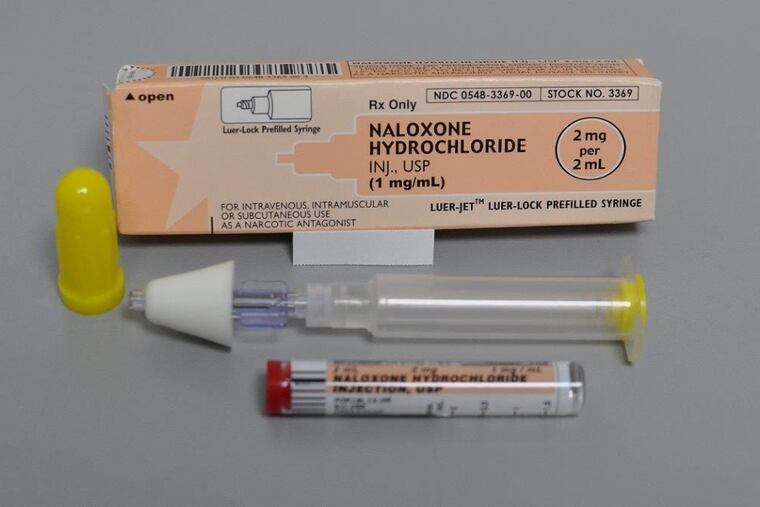New Jersey funeral director tired of seeing opioid deaths posts poignant message about addiction crisis
The opioid crisis is far worse than people realize, says a New Jersey funeral director who posted a blog on his website that is going viral.

A rant about the opioid crisis went viral after a Middlesex County, N.J., funeral director created a post on his business website titled 'F— you, Opioids.'
Peter Kulbacki, 60, put his frustrations in words and posted them this week on his website for the Brunswick Memorial Funeral Home in East Brunswick. He said he believes that the drug crisis is far worse than the public realizes and that the statistics fall short of the real story behind deaths that are often ruled accidental or suicide.
"Those who know me know I'm not prone to profanity, and as the consummate professional, I cannot say this to the parents, children, siblings, friends, and neighbors that we serve in the aftermath of opioid addiction. But I want to scream it out loud. F— you heroin," Kulbacki wrote in his post.
"Folks, we have a problem, a very real problem right here in our backyard, in every town. Every month we get overdose calls, and from personal experience I'm telling you it's truly getting worse. Middlesex County is ranked one of the top four counties in New Jersey for opioid overdoses. I speak to local police officers who are issued two doses of Narcan at the beginning of their shifts, and have to come back to the station before their shift is over because they've already used the initial two doses. True story.
"I am witness to the parents left with inexplicable grief. I am witness to the spouses left to carry the emotional and economic burden of raising a family alone. I am witness to the children who are left wondering, 'Why?' "
In an interview Wednesday, Kulbacki, who said he has been in the funeral home business about 40 years, said it pains him to see the senseless loss of life from an out-of-control drug crisis. He said he does not have the answers, but believes the medical community and pharmaceutical industry have to join police and emergency response teams who are seeing the face of death on a regular basis. One woman, he said he had been told by authorities, survived 10 times from overdoses after she was given the life-saving drug that blocks the effects of opioids.
He has become passionate about the issue as the number of overdose funerals increased sharply. About five years ago, he said, his business averaged a handful of overdose deaths annually. Now it is making arrangements for several overdose deaths in some months that surpass what had been yearly numbers.
The Centers for Disease Control and Prevention reports that nationwide, there were 52,404 drug deaths in 2015 (26.3 per 100,000) and 34,162 (10.6 per 100,000) were caused by opioids. According to the New Jersey Office of the State Medical Examiner, there were 1,587 drug deaths across the state in 2015. In Pennsylvania, the CDC reported 4,642 drug deaths across the state in 2015.
Another funeral director, Charles A. Castiglia, is president of the trade organization International Order of the Golden Rule, which published a guide called. "Opioid Epidemic: How Funeral Directors Can Respond." Two years ago, Castiglia, who has two locations outside Buffalo, N.Y., got his first call about an overdose on Thanksgiving. While celebrating Thankgiving, the family learned that their friend's son died of an overdose the day before he was to enter a rehabilitation center. The next fatal overdose was on Easter. The number of overdoses is now one or two a week, he said.
It has taken a toll on his staff, as the business is part of the community and many of the deaths are family friends of the staff, "and we're not used to this," he said.
The deaths are mostly white men in their 30s and 40s, he said.
"We're losing a generation. That's what it feels like," Castiglia said Wednesday.
Kulbacki's post, although written as a "frustration piece," immediately garnered attention. Kulbacki received interview requests from reporters across the region – among the first to report the post was NJ.com. Kulbacki said he was glad that it attracted widespread attention with people talking about the problem and solutions.
The bottom of the blog commended the people and groups affected by addiction and advocating for providing help to those who need it. Some of those included the East Brunswick Police Department's Police-Assisted Addiction Recovery Initiative (PAARI), which provides outreach to township residents who have had struggles with addiction, and Immaculate Conception Church's "A Safe Place" support group for families dealing with the aftermath of opioid addiction.
He ended: "We have to stand and fight as a community. We have to beat this horrible monster."